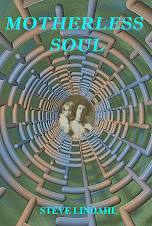 Haunt Me Still by Jennifer Lee Carrell
Haunt Me Still by Jennifer Lee CarrellMy rating: 4 of 5 stars
Jennifer Lee Carrell has mixed history, conjecture, and mysticism together in Haunt Me Still, a novel about the curse behind Shakespeare's Macbeth. This is a subject that has interested me since 1972 when I was in the New Jersey Shakespeare Festival with a director who would only refer to the work as The Scottish Play. There's a long tradition in the theater that says Shakespeare included real spells in his work and that is why there have been so many problems with countless productions.
The main character in Haunt Me Still is Kate Stanley, a Shakespearean scholar who has left the academic world for the theater. She is called to Scotland by Lady Nairn, a former actress who is now the widow of Sir Angus, a wealthy Scottish lord who spent much of his life collecting rare artifacts associated with Shakespeare. Lady Nairn wants Kate to help her find a lost Macbeth manuscript that is supposed to include sections that were cut before the play was ever produced. After that manuscript is found, Lady Nairn wants Kate to direct a production of the original version.
The novel includes pagans who practice witchcraft, some in good ways, but others in a much darker fashion. There are underlying themes of revenge, love, and insatiable quests for knowledge throughout the book, but it is the history, both real and imagined, that fascinates me the most. Carrell has interspersed a number of scenes from sixteenth and seventeenth century England in the book, so the reader can have a full picture of the background. Those back stories are at least as interesting as the modern tale.
Some of the modern action scenes seemed a little overdone and some of the ways Kate determined where to look for the manuscript seemed contrived. But overall the book is a good read and the history is fascinating.
View all my reviews









